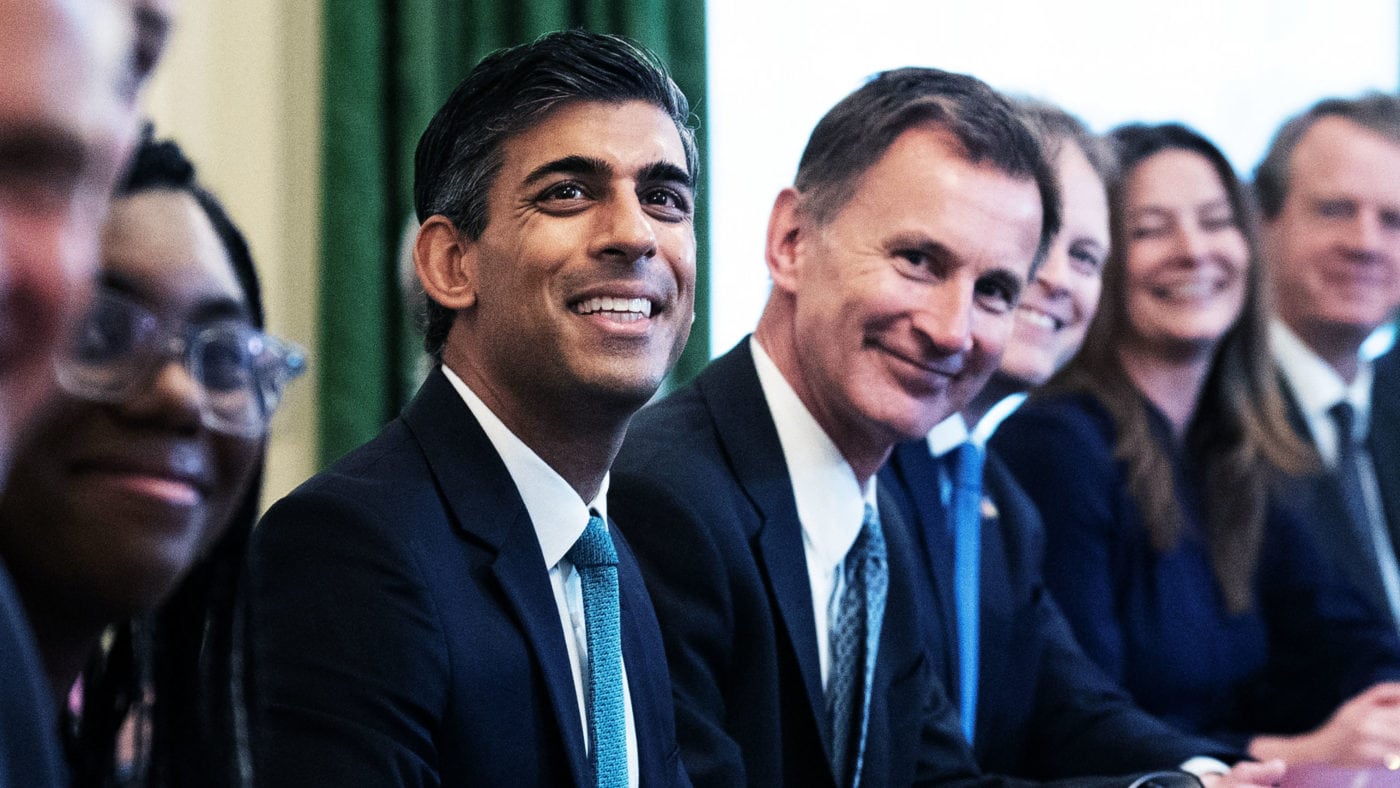All things considered, Rishi Sunak has had a decent start to life in Number 10.
The gilt yields that damned Liz Truss are down dramatically, the polling gap with Labour has narrowed and the PM’s new Cabinet suggests a more collegiate approach than the loyalty-first regime of his predecessor.
Even the weather seems to be helping Sunak out, with unseasonably high temperatures tamping down demand for gas just when a cold winter would have been most ruinous for the public finances. No wonder Michael Gove, whisked from early semi-retirement to rejoin the front line, has declared that ‘boring is back’.
In the immediate term, all eyes are on November 17, in what is now a full-blown Autumn Budget. The big recent falls in the cost of borrowing have made Jeremy Hunt’s job somewhat less onerous, but he’s still talking about ‘eye-watering’ spending decisions, which will undoubtedly be dubbed Austerity 2.0. (The fact Hunt had a meeting with George Osborne this week won’t have done much to unstick that tag.)
This won’t be a repeat of the coalition years though. For one thing, Hunt looks like sharing the pain more evenly between tax rises and spending cuts. Where Osborne went for a roughly 80:20 split in favour of cuts, Hunt is apparently minded to about 50:50.
Just how much he will end up having to cut is also very uncertain. Because, for all the appeals to stability and boredom, you can’t escape the remarkable volatility of the post-Covid era.
In the markets, as Liam Halligan notes, yields on 10-year gilts fell from 4.2% to 3.5% in the space of a week, while the pound rose 2% in one day. Thanks to the way the OBR does its forecasts, simply moving the Autumn Budget back a couple of weeks has given Hunt an extra £6bn of fiscal ‘headroom’.
In the Commons, Tory MPs may be relatively becalmed now, but there are bound to be rumblings and rancorous briefings when Hunt starts to set out where the tax rises and spending cuts are going to fall. As one insider tells the Sunday Times, the parliamentary party is composed less of solid ideological blocs than it is of ‘influencers’ with clusters of hangers-on, which threatens to make party management the stuff of whips’ nightmares.
As for the polls, there’s no doubt voters have emphatically moved behind Labour, but swings of 11 percentage points in a week suggest there is a high degree of uncertainty in what the future electoral landscape looks like – though you still have to squint extremely hard to see much hope for the Tories.
That’s before we even factor in the annual NHS crises, the waiting lists, the impending wave of industrial action and how the Government will deal with rising crime, including the scourge of the Channel people smugglers.
All of which suggests that however good a start Sunak has made, however gaffe-free his public utterances and PMQs jousts, there’s vanishingly little chance his reign will be ‘boring’.


